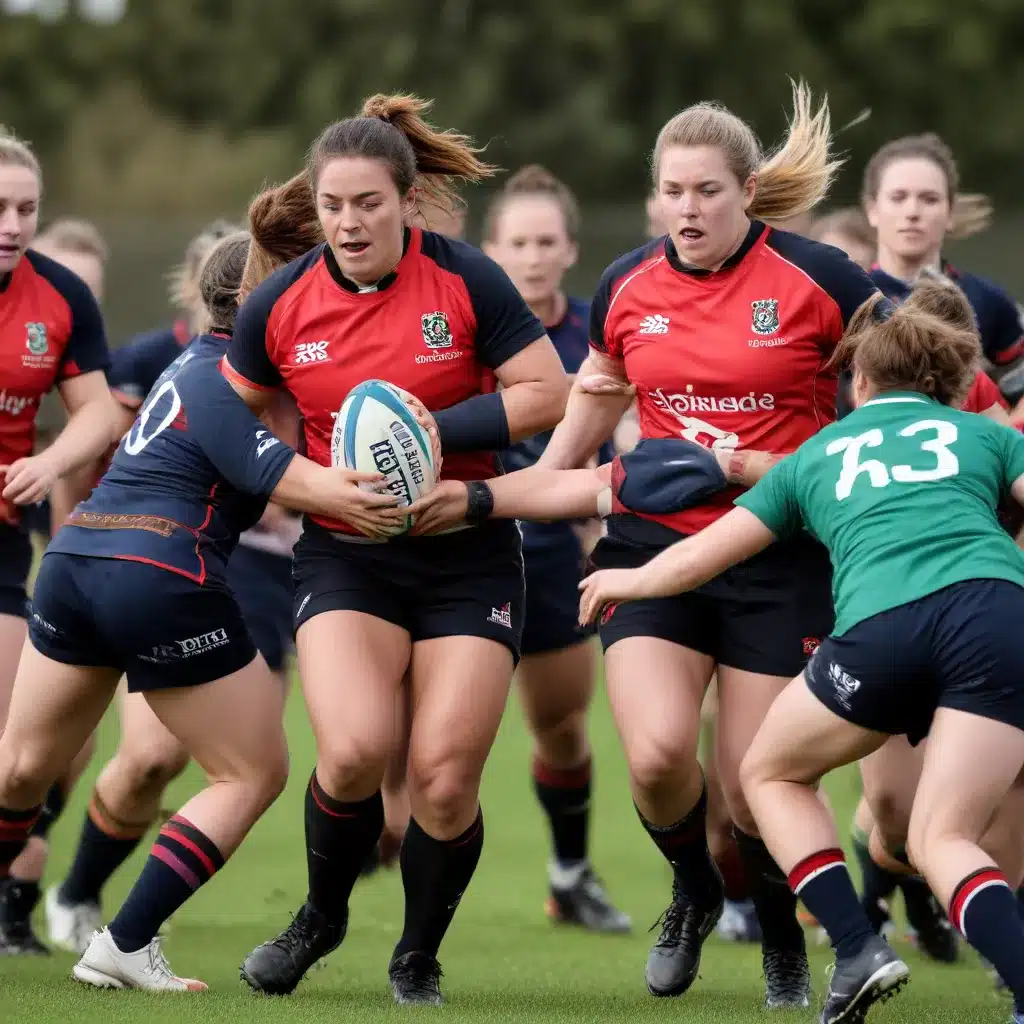
Women’s Rugby: Unlocking the Mental Health Advantages
Embracing the Power of Rugby for Improved Well-being
As a seasoned rugby professional, I’ve witnessed firsthand the profound impact the sport can have on the mental health and overall well-being of women. Rugby, with its unique blend of physical intensity, team camaraderie, and personal empowerment, offers a transformative experience that goes far beyond the playing field.
Improved Mental Well-being
One of the primary benefits of women’s rugby is its ability to enhance mental well-being. The physical demands of the sport trigger the release of endorphins, which can improve mood, reduce stress, and promote a sense of calm. Rugby also provides an outlet for emotional expression, allowing players to channel their energy and frustrations in a constructive manner.
“The physical exertion and adrenaline rush of rugby can have a remarkably positive effect on mental health,” explains Dr. Emma Shardlow, a sports psychologist and rugby enthusiast. “When players are fully engaged in the game, they experience a heightened sense of focus and mindfulness, which can alleviate symptoms of anxiety and depression.”
Stress Management Strategies
In addition to the immediate mood-boosting effects, rugby also equips players with valuable stress management strategies. The sport’s emphasis on teamwork, communication, and problem-solving encourages participants to develop coping mechanisms that can be applied to various aspects of their lives.
“Rugby teaches you how to handle pressure, work through challenges, and bounce back from setbacks,” says Claire Williamson, a former international rugby player and coach. “These skills are not only applicable on the pitch, but they also translate to professional and personal settings, empowering women to navigate the stresses of everyday life.”
Emotional Regulation and Confidence Building
The physical and mental demands of rugby also contribute to improved emotional regulation and a greater sense of self-confidence. As players push their boundaries and overcome obstacles, they gain a deeper understanding of their own capabilities, fostering a positive self-image and a stronger sense of empowerment.
“When women engage in a sport as physically and mentally demanding as rugby, they develop a newfound appreciation for their bodies and their abilities,” explains Dr. Shardlow. “This not only boosts their confidence but also helps them cultivate a healthier relationship with their emotions, leading to more effective emotional regulation and resilience.”
The Cardiovascular and Muscular Benefits
While the mental health advantages of women’s rugby are profound, the sport also offers significant physical benefits. The high-intensity nature of the game, with its constant running, tackling, and maneuvering, provides an excellent cardiovascular workout, improving heart health and respiratory function.
“Rugby is a fantastic way for women to improve their cardiovascular fitness,” says Claire Williamson. “The sport challenges players to push their limits, leading to enhanced endurance and a stronger, more resilient cardiovascular system.”
In addition to the cardiovascular benefits, women’s rugby also promotes muscular strength and endurance. The sport’s emphasis on full-body engagement, from powerful running and tackling to explosive bursts of speed, helps players develop a well-rounded musculature that can improve overall physical performance and reduce the risk of injury.
The Power of Team Camaraderie
Beyond the individual mental and physical benefits, women’s rugby also fosters a sense of community and belonging that can have a profound impact on mental health. The sport’s emphasis on teamwork, communication, and shared goals creates a supportive environment where players can thrive both on and off the pitch.
“The team dynamic in rugby is truly special,” says Williamson. “The camaraderie, the shared struggles, and the celebrations of success all contribute to a deep sense of belonging that can be incredibly empowering for women.”
This team-based approach not only enhances social connection but also provides a platform for developing leadership skills, communication abilities, and a greater sense of self-confidence. As players navigate the challenges of the game together, they learn to trust, support, and empower one another, skills that can be applied to various aspects of their lives.
Overcoming Barriers and Promoting Inclusivity
While the benefits of women’s rugby are undeniable, the sport still faces several barriers and challenges that can hinder participation and access. Societal stereotypes, limited media coverage, and a lack of funding and resource allocation often create obstacles for women interested in pursuing the sport.
“We need to continue challenging the misconceptions and stigmas surrounding women in rugby,” says Dr. Shardlow. “By promoting inclusive initiatives, increasing visibility, and ensuring equitable access to resources, we can create an environment where more women feel empowered to embrace the transformative power of this sport.”
Aberdeenshire RFC, for example, has been at the forefront of these efforts, actively championing women’s rugby and providing opportunities for players of all ages and skill levels to get involved. Through community outreach, youth development programs, and dedicated coaching support, the club has been instrumental in breaking down barriers and fostering a more inclusive rugby culture.
Unlocking the Potential
As a seasoned rugby professional, I’ve had the privilege of witnessing the extraordinary impact the sport can have on the mental health and overall well-being of women. From improved mood and emotional regulation to enhanced physical fitness and team-based camaraderie, rugby offers a transformative experience that can positively shape the lives of participants.
By embracing the power of women’s rugby and addressing the challenges that hinder participation, we can unlock the immense potential of this sport to improve mental health, foster personal growth, and create a more inclusive and empowering environment for all. As we continue to champion the cause, I encourage women of all backgrounds to explore the life-changing benefits of rugby and unlock their full potential.
